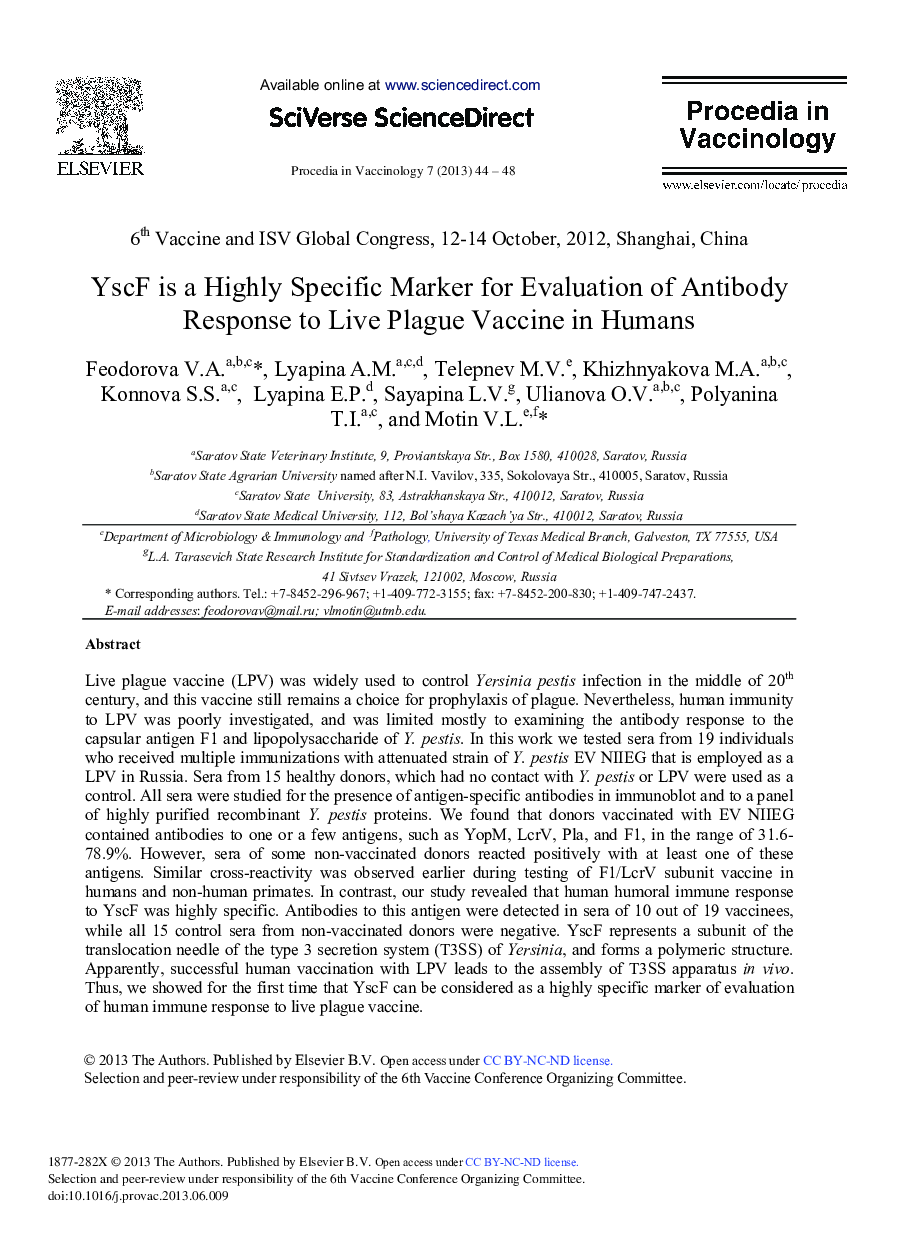| Article ID | Journal | Published Year | Pages | File Type |
|---|---|---|---|---|
| 2473838 | Procedia in Vaccinology | 2013 | 5 Pages |
Live plague vaccine (LPV) was widely used to control Yersinia pestis infection in the middle of 20th century, and this vaccine still remains a choice for prophylaxis of plague. Nevertheless, human immunity to LPV was poorly investigated, and was limited mostly to examining the antibody response to the capsular antigen F1 and lipopolysaccharide of Y. pestis. In this work we tested sera from 19 individuals who received multiple immunizations with attenuated strain of Y. pestis EV NIIEG that is employed as a LPV in Russia. Sera from 15 healthy donors, which had no contact with Y. pestis or LPV were used as a control. All sera were studied for the presence of antigen-specific antibodies in immunoblot and to a panel of highly purified recombinant Y. pestis proteins. We found that donors vaccinated with EV NIIEG contained antibodies to one or a few antigens, such as YopM, LcrV, Pla, and F1, in the range of 31.6- 78.9%. However, sera of some non-vaccinated donors reacted positively with at least one of these antigens. Similar cross-reactivity was observed earlier during testing of F1/LcrV subunit vaccine in humans and non-human primates. In contrast, our study revealed that human humoral immune response to YscF was highly specific. Antibodies to this antigen were detected in sera of 10 out of 19 vaccinees, while all 15 control sera from non-vaccinated donors were negative. YscF represents a subunit of the translocation needle of the type 3 secretion system (T3SS) of Yersinia, and forms a polymeric structure. Apparently, successful human vaccination with LPV leads to the assembly of T3SS apparatus in vivo. Thus, we showed for the first time that YscF can be considered as a highly specific marker of evaluation of human immune response to live plague vaccine.
